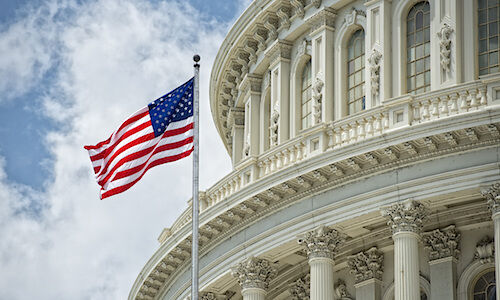Mike Pompeo: «Show of Fealty Earned HSBC Little Respect»
U.S. Secretary of State Mike Pompeo called HSBC’s recent exchanges with Beijing regarding the controversial national security law in Hong Kong a «cautionary tale» and condemned China’s «coercive bullying tactics».
Beijing recently threatened to punish the U.K. unless allowed Huawei to build its 5G network, reportedly using HSBC and commitments to build nuclear power plants as leverage.
«The United States stands with our allies and partners against the Chinese Communist Party’s coercive bullying tactics,» said Pompeo in a statement.
«Browbeating of HSBC»
Pompeo specifically highlighted Beijing’s «browbeating of HSBC» as a «cautionary tale» for others looking to demonstrate similar loyalty.
«Just last week, the bank’s Asia-Pacific CEO, Peter Wong, a member of the Chinese People’s Political Consultative Conference (CPPCC), signed a petition supporting Beijing’s disastrous decision to destroy Hong Kong’s autonomy and to break commitments made in an U.N.-registered treaty,» he said.
«That show of fealty seems to have earned HSBC little respect in Beijing, which continues to use the bank’s business in China as political leverage against London.»
«Corporate Kowtows»
According to Pompeo, such aggressive behavior is sufficient reason to rethink economic overreliance on China, especially when it comes to key infrastructure, adding that the U.S. was ready to support the U.K. on «building secure and reliable nuclear power plants to developing trusted 5G solutions that protect their citizens’ privacy».
«Free nations deal in true friendship and desire mutual prosperity, not political and corporate kowtow,» Pompeo added.
Political Spotlight
HSBC continues to be in the spotlight and has steadily accumulated more and more contentious comments from politicians worldwide as it constantly finds itself in the crossfires between Beijing and its foreign counterparts.
Last week, former chief executive and CPPCC vice-chairman Leung Chun-ying said that HSBC could not «afford to make Chinese money while following the West in doing things that undermine Chinese sovereignty, dignity and people's feelings».
This subsequently led to the bank's public declaration of support for the national security law which was followed up swiftly with backlash from British members of parliament.



























